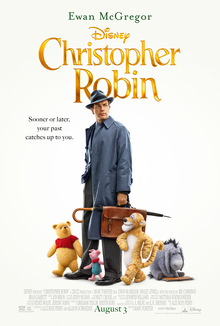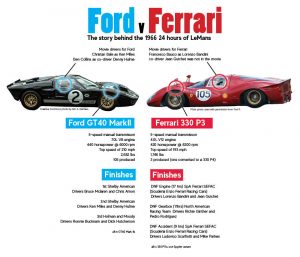Christopher Robin Movie Review

Image courtesy of Wikipedia
October 27, 2018
There’s a scene at the end of “Gregor the Overlander,” in which the young title character realizes that he is the one spoken of in Bartholomew the Sandwich’s prophecy with the line of “And the last to die look you where he leaps.” He leaps, but is saved by a giant, talking bat who allows his “Bonded” rider to fall into the cloudy vapors to smash, broken, two thousand feet down. It’s that sense of disenchantment and slight annoyance that ties the book, “Gregor the Overlander,” and the movie,” Christopher Robin”, together. While I haven’t read the books, it’s not hard to imagine A.A. Milne being at least vaguely intrigued and no doubt slightly amused by this idea of, “Who exactly is Post Hundred-Acre Wood Christopher Robin?”
The movie starts with a farewell party for Christopher Robin, who’s going away to boarding school. Slowly, he forgets his friends as he adapts to adult life, meeting his architect wife Evelyn and having his daughter Madeline, even fighting in WWII. After this he returns home and becomes the efficiency manager at Winslow Luggage. He is told by his boss, Giles Winslow Jr, to reduce costs in any way he can, largely by choosing which employees to fire, forcing him to miss his planned trip to the countryside with his family.
Pooh wakes up during this chaos and cannot find his friends. He goes through Christopher’s door in the hundred acre wood, and finds him. After taking Pooh home, Christopher awakes and finds his shelves wrecked in the bear’s search for honey. Pooh is escorted back to Sussex on the next train. The duo sneaks past Christopher’s Sussex cottage, enters the wood, gets lost in the fog and are separated. Finding Eeyore and Piglet, Christopher finds the rest of his friends in a tree-stump. After convincing them it really is him, they fall asleep. Christopher awakens and begins a mad rush to work.
Realizing he’s forgotten all of his important papers, his friends set out after him, joined by Madeline. Once at Winslow, the three groups reunite and Christopher improvises a plan to save his department. He humiliates his boss in front of the CEO by pointing out that he had done nothing to help the plan, having been golfing all weekend.
The movie attempts to portray Robin as a massive workaholic; it does so admirably, but it is also slightly frustrating seeing his transformation back to a family man. It is as though a light were somehow flipped on. The same flaw exists in the Overlander, where the author spends so very much time building the certainty that the title character is going to die, the perception that Robin is a bad father/husband, that the magic save/shift is a letdown.
The other sticking point is the fact that the stuffed animals are portrayed as the nine-year-old would have thought about them in his head, every second to every single person in the world, diminishing what it means for Christopher to have given them up and forgotten about them, although this leads to a funny conversation “You’ve seen ’em ‘aven’t yeh?,” this sentence falling at the beginning of aforementioned conversation, as said in the movie.
The movie appeals to the child in all of us by essentially yelling at the adults in the room for making us do work, but to encourage the laziness in all of us by arguing, “Doing nothing, often leads to the very best of something,” is hardly fair at all. Nobody wants to leave for boarding school, but surely any responsible adult doesn’t have the luxury of quitting their job (or of promoting the “Do Nothing” philosophy). If you’ve read this far, then fear not dear reader. I would recommend this movie with some reservations, as listed above.
To recap, though to most, I’m just now getting around to it, I would recommend this movie because Pooh is still Pooh, and is still as heartwarmingly self-deprecating as normal, but one of my major sticking points is that there’s just too much of the little guy. The hundred acre wood is still a nice place and the fog to sun change is masterful, but if “it’s always a sunny day when Christopher Robin comes out to play” and “Doing nothing often leads to the very best of something.”, then why should we do anything at all?





